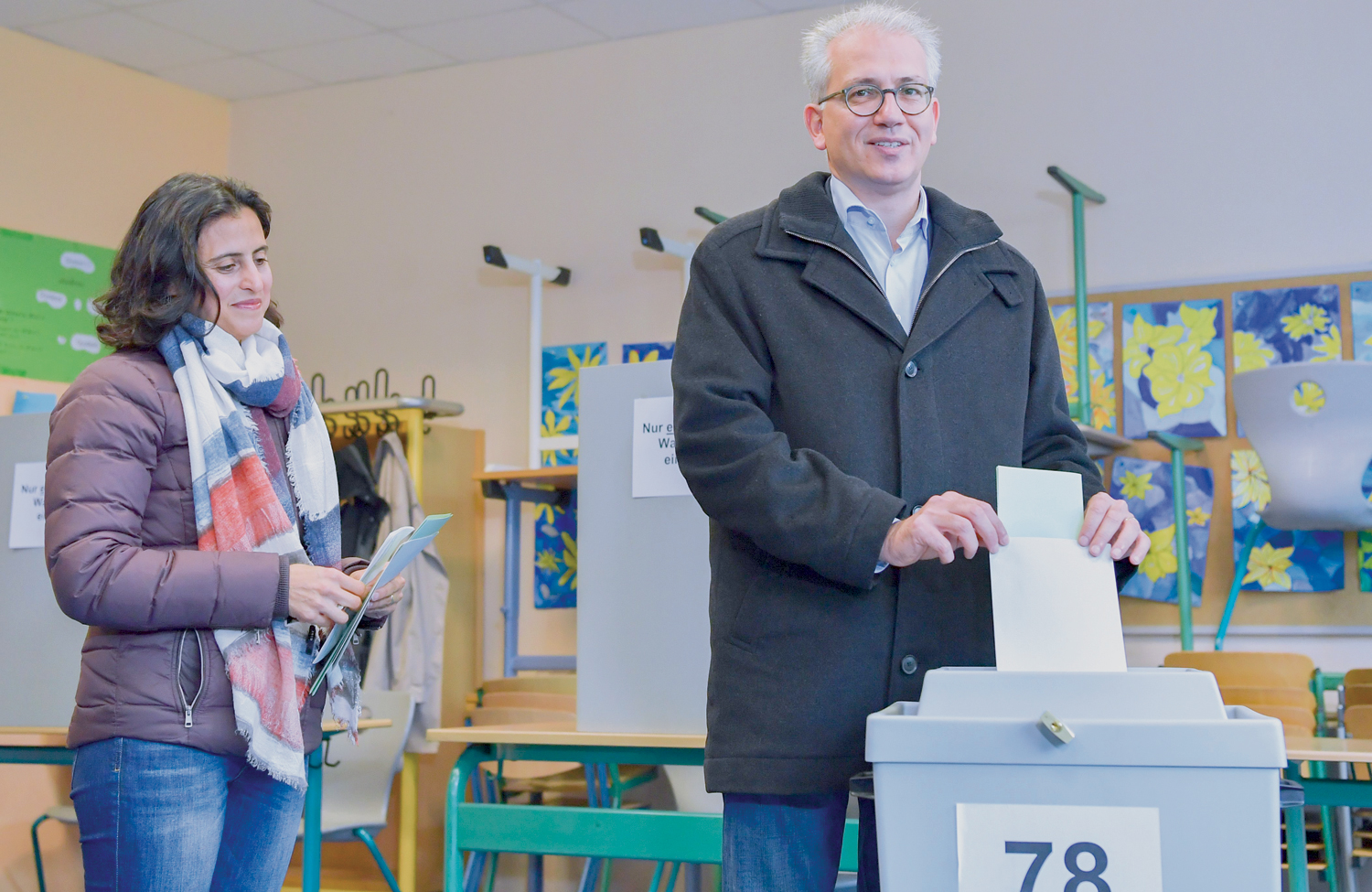

FRANKFURT AM MAIN: Shifting tectonic plates in German politics are set to mark a second regional election in as many weeks on Sunday, threatening fresh aftershocks for Chancellor Angela Merkel’s battered Berlin coalition.
The capital’s government quarter has held its breath since Bavarians punished Merkel’s allies — the conservative Christian Social Union (CSU) and centre-left Social Democrats (SPD) — in a state poll earlier this month.
Aiming to damp down infighting that has driven voters from the traditional big parties, leaders urged discipline and no heads rolled before polls opened for 4.4 million voters in Hesse state — just seven per cent of the national electorate.
“Will Hessen explode the grand coalition?” in Berlin between Merkel’s Christian Democratic Union (CDU) and the SPD, top-selling newspaper Bild asked.
“Hessen votes, Berlin trembles,” agreed daily Sueddeutsche Zeitung.
“The chancellor has never been under so much pressure.” A bad outcome for either CDU or SPD will uncork a fresh round of finger-pointing and calls to abandon the veteran chancellor’s third loveless “grand coalition”.
Most in Hesse are relatively content with their regional government, meaning “there would be no mood pointing towards change among Hessian voters without the intent to send a signal to Berlin,” weekly Welt am Sonntag commented.
Surveys point to both CDU state premier and loyal Merkel follower Volker Bouffier and his SPD challenger Thorsten Schaefer-Guembel suffering heavy losses compared with 2013.
Both parties stand to shed around 10 points, for results in the high 20s for the CDU and around 20 per cent for the SPD. Depending how other parties perform, the coalition arithmetic could still allow either to lead a new state government.
Electoral momentum is on the side of newer parties, the far-right, anti-immigrant Alternative for Germany and the left-leaning ecologist Greens.
The AfD has entered 15 of Germany’s 16 state parliaments as well as the federal Bundestag, propelled by a backlash to Merkel’s migration policy.
The protest party is expected to eat into both the CDU and SPD’s vote to enter the Hessian legislature with a low double-digit share.
Meanwhile, the Greens — already the junior government partner in Hesse — look poised to almost double their 2013 vote share to around 20 per cent, topping the 17.5 per cent they scored in conservative Bavaria.
The party attracts voters who favour welcoming refugees, worry about climate change or are fed up with big party indulgence towards the car companies during a years-long scandal over harmful emissions from diesel vehicles.
Hessian Greens leader Tarek al Wazir predicted his party would also benefit from disappointment over quarrels that have rocked Merkel’s coalition in recent months, mostly over the AfD’s core issue of immigration. While the CDU/CSU have been “wrapped up in themselves,” al Wazir said, “we have never allowed ourselves to be driven crazy by the AfD’s attacks”. — AFP
Oman Observer is now on the WhatsApp channel. Click here



